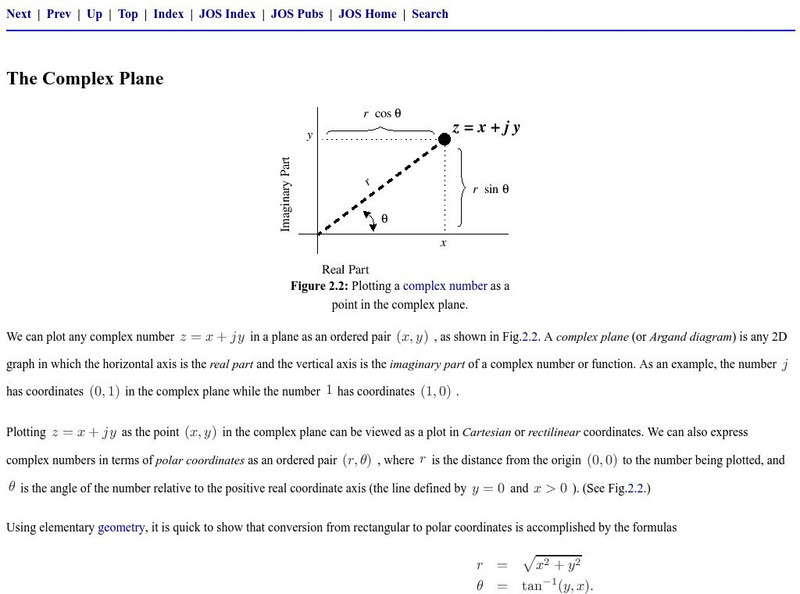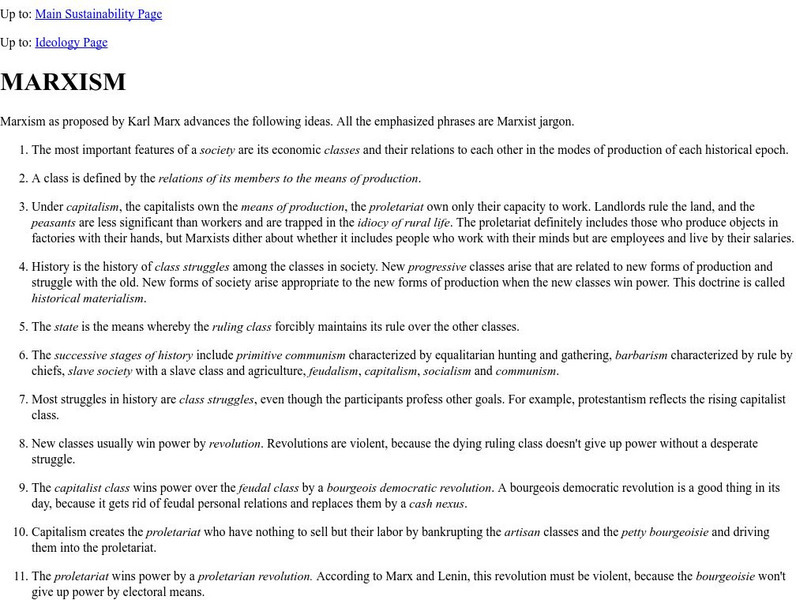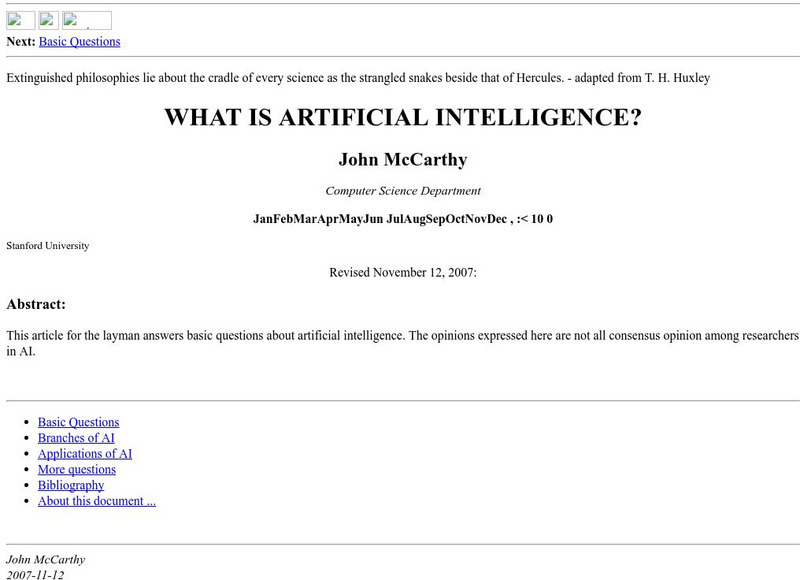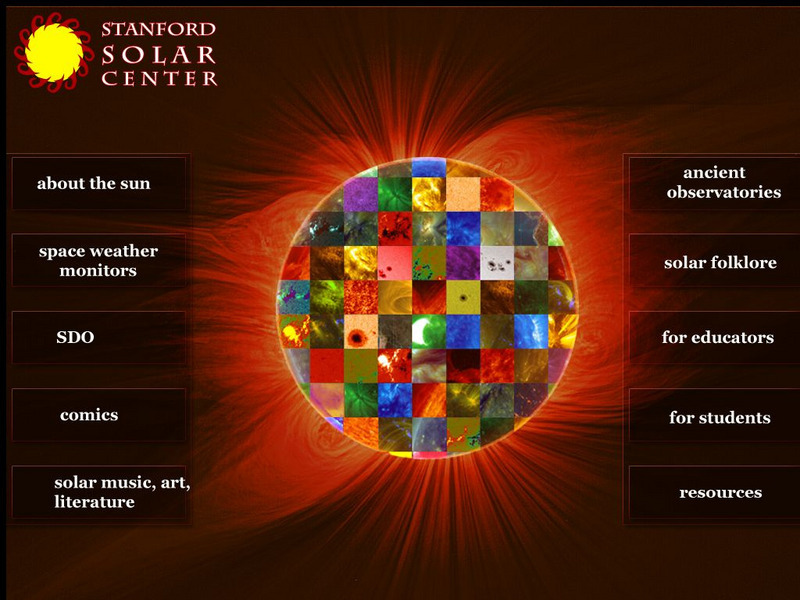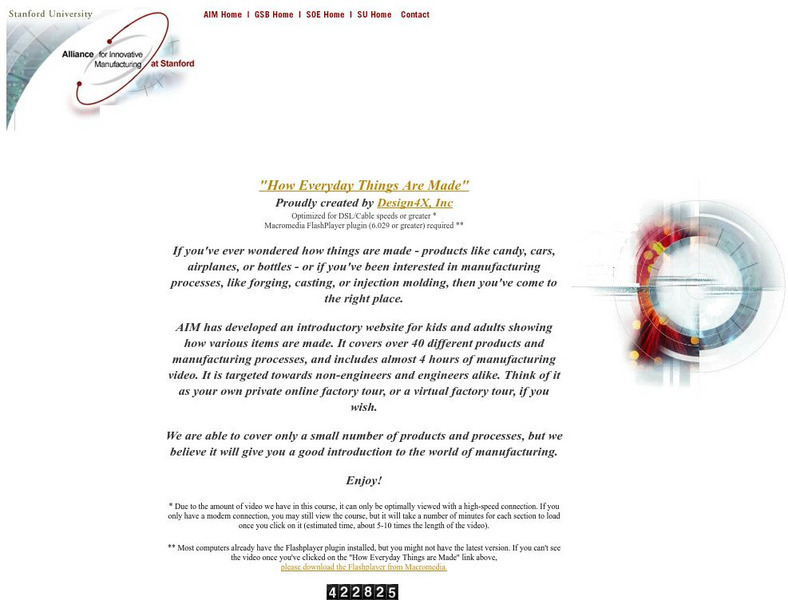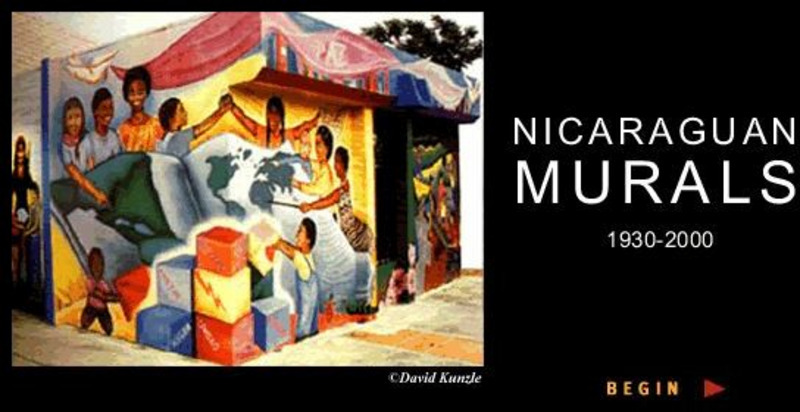Stanford University
Stanford University: De Moivre's Theorem
contains relevant information regarding to de moivre's theorem.
Stanford University
Stanford University: Rational Exponents
A brief description of rational exponents and their meaning.
Stanford University
The Complex Plane (Standford University)
Contains both general and detailed information about the complex plane.
Stanford University
Standford University: The Complex Plane
This resource contains both general and detailed information about the complex plane.
Stanford University
Stanford University: Marxism
Lengthy explanation of the views expressed by Marx. Covers his thoughts on production and the means of production, class struggles, the bourgeoisie and the proletariat, and what he saw as a possible end to the conflict - what some call...
Stanford University
Stanford University: What Is Artificial Intelligence?
An overview of artificial intelligence (AI), the different branches of AI, applications of artificial intelligence, and the like.
Stanford University
Stanford University: Our Acidifying Ocean
A virtual lab activity that investigates the life cycle of the sea urchin. As part of the lab activity, understand how the larval development is affected by the increasing acidity of the ocean.
Stanford University
Stanford Solar Center: About the Sun
The Stanford Solar Center provides information about the sun, activities, solar art, and solar folklore.
Stanford University
Mlk and the Global Freedom Struggle: Civil Rights Act of 1964
Read about President John F. Kennedy's role in attempting to outlaw segregation, and, after Kennedy's assassination, President Johnson's role in making that happen with the passage of the Civil Rights Act of 1964.
Stanford University
Stanford University: How Everyday Things Are Made
If you've ever wondered how things are made - products like candy, cars, airplanes, or bottles - or if you've been interested in manufacturing processes, like forging, casting, or injection molding, then you've come to the right place....
Stanford University
Civic Online Reasonong: A Little of Everything
From research observing fact checkers, three questions that we should always ask when we come across unfamiliar online content: Who's behind the information? What's the evidence? What do other sources say? This sequence of lessons...
Stanford University
Stanford Children's Health: Do Parents Influence Their Kid's Health Behaviors?
Research shows that how you react to illness has a lot to do with how your parents reacted to illness when you were a child. As with most other activities, children repeat what they learn from their parents. This article describes...
Stanford University
Stanford University: Invisible Rays
This lesson focuses on investigating the electromagnetic spectrum using ultraviolet beads. Students learn how material properties change as the size of the material decreases to the nanoscale.
Stanford University
Stanford University: How Big Is It?
Lesson provides an activity that introduces the nanoscale using the metric system.
Stanford University
Stanford University: Bubbling Tablets
Students learn how material properties change as the size of the material decreases to the nanoscale. This experiment investigates the effects of surface area on reaction rates.
Stanford University
Stanford University: Pour It Out
Students learn how material properties change as the size of the material decreases to the nanoscale. This lesson investigates the effects of forces at different scales.
Stanford University
Stanford University: Magnetic Force Microscopy
Help students learn how scientists use powerful tools to visualize, study and control materials at the nanoscale.
Stanford University
Moving Into the Galleria Dell'accademia
The article itself is well written, but there are also links and many photographs. Be sure to click on "scanning the David" at the bottom of first page. It is a real treat!
Stanford University
Stanford University: Bacterial Disease Research
Read about cutting-edge research on bacterial pathogens from the Stanford University. Then view movies showing how these pathogens invade their hosts. The introduction for the non-biologist is very helpful.
Stanford University
Stanford University: The History of Apartheid in South Africa
Presents a history of apartheid in South Africa as part of a university course project.
Stanford University
Percussion Fm Synthesis
Interesting site on the technical side of FM synthesis, including how to make different sounds. For either the very curious or very advanced student.
Stanford University
Stanford University: Sleep Talking (Somniloquy)
This site discusses sleep talking. It answers the questions of: What is sleep talking? What are the symptoms? Why do some people talk in their sleep?
Stanford University
Stanford Center for Latin American Studies: Nicaraguan Murals
Visual database of murals created in Nicaragua between 1930 and 2000.
Stanford University
Influenza Pandemic of 1918: Statistics From the Influenza Epidemic
Find a graph showing the mortality caused by the influenza epidemic in Kansas in 1918. Included is a map showing the spread of the flu across the United States in the autumn of 1918.





